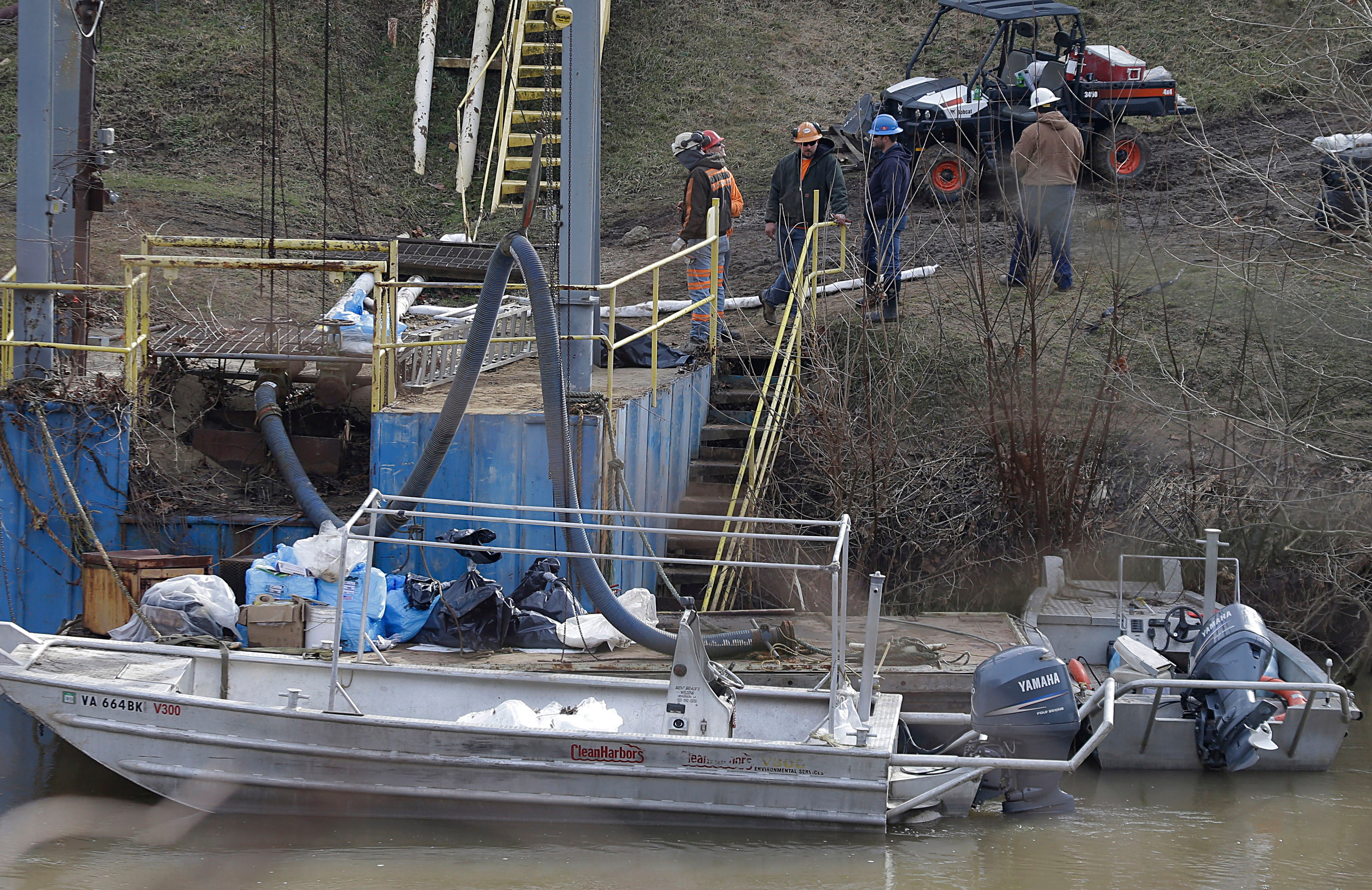Troubling story in Charleston from an inspiring journalist

Workers at the Elk River, where a chemical leak left 300,000 without potable water for five days. (AP photo/Steve Helber)
You may remember how a couple of weeks ago a chemical spill near Charleston, West Virginia left about 300,000 people unable to wash with or drink the water coming out of their taps.Because it hit the state capitol, this particular mess affected the governor, legislators and lobbyists who’ve arguably done a pretty bad job of regulating the coal and chemical industries that have had such a dramatic effect on rural areas of the state.On Wednesday’s Fresh Air, you can hear my interview with Ken Ward, a native West Virginia journalist who could probably be at the New York Times today if he weren’t so deeply committed to serious reporting in his home state.Ward has been winning awards for years reporting on energy and the environment in West Virginia, and what he says about the spill and the confusing information officials were offering to citizens afterward is eye-opening.To Ward, this isn’t a story about an accident and a clean-up. It reflects regulatory failures at the state and national levels that need attention.I found him fascinating to listen to, and I was inspired both by his dogged and courageous reporting and the support he’s gotten from a family-owned hometown paper.And you can hear how he responds when I ask why he never took jobs at papers bigger than the Charleston Gazette.You can hear Fresh Air at 3 and 7 on 91FM. If you’re listening outside the Philadelphia area, find a station here.
WHYY is your source for fact-based, in-depth journalism and information. As a nonprofit organization, we rely on financial support from readers like you. Please give today.


